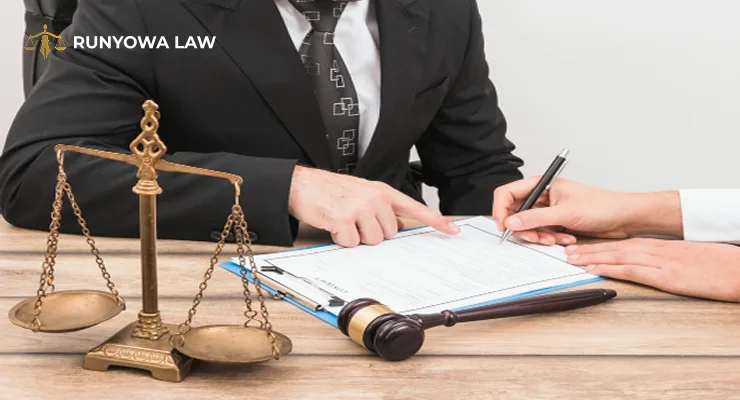If you’ve been in a car accident in Saskatchewan, understanding how to deal with SGI (Saskatchewan Government Insurance) claims is crucial. SGI provides auto insurance to all residents, but the claims process can be confusing, especially during stressful times. This comprehensive guide explains every step of the SGI claims process—what to do, how to file, your rights, benefits, and legal considerations.
1. What Is SGI and What Does It Cover?
Saskatchewan Government Insurance (SGI) is a Crown corporation that provides auto, property, and injury insurance to Saskatchewan residents. SGI covers both property damage and personal injury claims resulting from vehicle collisions.
Key Components of SGI Coverage:
- No-Fault Coverage: Offers benefits regardless of who caused the accident.
- Tort Coverage Option: Allows you to sue the at-fault driver for additional compensation.
- Basic Auto Coverage: Includes damage to vehicles, medical benefits, and death/funeral benefits.
- Extended Coverage: Additional insurance options through SGI Canada.
2. Immediate Steps to Take After an Accident
Your actions right after a crash can greatly affect the claims process. Follow these steps to stay protected:
a. Ensure Safety First
- Check yourself and others for injuries.
- Move to a safe location if possible.
- Call 911 if anyone is injured or if there’s significant damage.
b. Exchange Information
- Names, phone numbers, addresses
- Driver’s license and license plate numbers
- Insurance details
c. Document the Scene
- Take photos of damage, surroundings, road signs
- Record witness statements and contact information
d. Report the Accident to Police
Required if injury, death, or property damage exceeds $2,000.
e. Contact SGI
Notify SGI as soon as possible to begin the claim.
3. How to File an SGI Claim
a. Online or Over the Phone
File through SGI’s website or call their claims hotline. Provide your driver’s license and plate number.
b. Required Information
- Date, time, and location of accident
- Description of incident
- Names of others involved
- Witness details and police report number
c. Schedule an Appointment
- For vehicle damage, you may need to schedule a damage assessment.
- For injuries, SGI may refer you to a healthcare provider.
4. Types of SGI Claims
a. Property Damage Claims
- Covers damage to your car and belongings inside.
- May include towing, rental car, and repair costs.
b. Personal Injury Claims
- Medical treatment, therapy, rehabilitation
- Loss of income and disability benefits
- Travel for treatment and personal care expenses
c. Total Loss Claims
If the car is written off, SGI pays market value minus deductible.
5. Understanding No-Fault and Tort Options
When registering a vehicle in Saskatchewan, drivers choose either No-Fault or Tort insurance coverage.
a. No-Fault Coverage
- All accident-related benefits covered without suing
- Cannot sue for pain and suffering (except in severe cases)
b. Tort Coverage
- Lower premiums
- You can sue the at-fault party for pain and suffering, lost wages, etc.
6. Injury Benefits Under SGI
a. Medical and Rehab Services
Doctor visits, hospital stays, physiotherapy
b. Income Replacement
Up to 90% of net income (within limits)
c. Personal Care Benefits
Help with daily living if injury limits self-care ability
d. Death and Funeral Benefits
For families of individuals who died in an SGI-covered accident
7. SGI Claim Timelines and Deadlines
a. Reporting the Accident
Must report to SGI within 7 days (or as soon as reasonably possible)
b. Injury Claims
Ideally reported within 30 days of accident
c. Medical Documentation
Submit receipts and medical reports promptly
8. How SGI Assesses Vehicle Damage
a. Damage Estimation
SGI estimator inspects your vehicle and provides a damage report.
b. Repair Shop Authorization
Choose from SGI-accredited repair shops or your preferred garage.
c. Rental Vehicle Support
Temporary car provided during repairs (if coverage allows)
9. Disputes with SGI Decisions
a. Internal Appeal Process
- Start by asking your claims adjuster to review
- If unresolved, escalate within SGI
b. Auto Injury Appeal Commission (AIAC)
Independent body to review injury benefit disputes
c. Legal Action
You can pursue court options, especially under Tort coverage
10. Legal Assistance and SGI Claims
a. When to Get Legal Help
- Serious injuries
- Denied claims
- Tort claims involving a lawsuit
b. Legal Costs
Many personal injury lawyers work on contingency (no fee unless you win)
c. Mediation and Settlement
Lawyers can negotiate fair settlements and represent you in court if needed
11. Tips to Strengthen Your SGI Claim
a. Be Honest and Consistent
Any false information may void your claim
b. Keep Records
Save every receipt, report, and communication with SGI
c. Follow Medical Advice
Not following treatment plans can reduce your compensation
d. Stay Organized
Create a folder for all your SGI-related documents
12. Preventing Future Accidents
a. Defensive Driving Courses
Can reduce premiums and improve skills
b. Vehicle Maintenance
Keep tires, brakes, and lights in good condition
c. Avoid Distracted Driving
No texting or multitasking behind the wheel
Frequently Asked Questions (FAQs)
Q1. Do I have to accept SGI’s first settlement offer? No. You can negotiate or appeal if you believe it’s unfair.
Q2. What if the other driver was uninsured? SGI offers coverage even if the other driver has no insurance, depending on your policy.
Q3. Can I switch from No-Fault to Tort coverage? Yes, but only when renewing your vehicle registration.
Q4. How long do SGI claims take to process? It varies—simple property claims may close in weeks, injury claims can take months.
Q5. Can I use my own repair shop? Yes, but SGI must approve the estimate unless it’s an accredited shop.
Final Thoughts
Filing an SGI claim doesn’t need to be overwhelming. With the right information and preparation, you can handle the process confidently and ensure you receive the benefits you’re entitled to. Whether you’re recovering from injury, managing repairs, or seeking fair compensation, knowing your rights and the step-by-step process is essential. Always consider seeking legal support if your case becomes complex.




